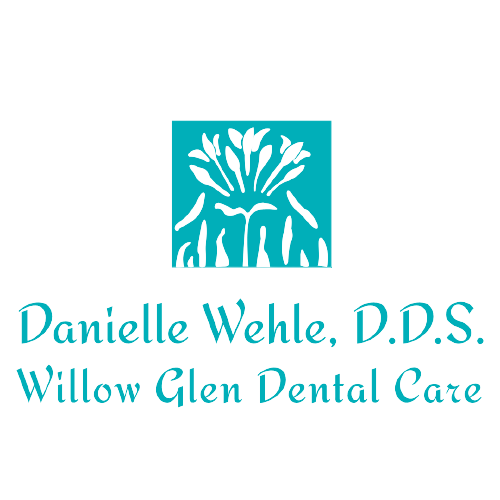Whether you're a regular attendee of dental exams or it's been a while since your last visit, we've got all the information you need to know about what to expect during your appointment. Regular dental exams are crucial for maintaining good oral health and preventing any potential issues from escalating. So, let's dive into the process step by step and ensure that you leave with a bright smile on your face!
Importance of Regular Dental Exams
Regular dental exams are the foundation of a healthy smile. They play a vital role in preventing oral health problems before they become serious and costly to treat. While brushing and flossing at home are essential, they can't replace the thorough cleaning and professional assessment that you receive during a dental exam.
During your exam, your dentist will carefully examine your teeth, gums, and mouth for any signs of cavities, gum disease, or other issues. Early detection is key when it comes to dental problems because treating them in their early stages is usually less invasive and more effective.
But regular dental exams aren't just about prevention – they also offer an opportunity for education. Your dentist can provide personalized advice on proper oral hygiene techniques tailored to your specific needs. They may recommend changes to your brushing or flossing routine or suggest additional measures such as using mouthwash or incorporating fluoride treatments into your routine.
In addition to assessing your oral health, dental exams often include X-rays to get a closer look at what's happening beneath the surface. These images can reveal hidden decay between teeth or potential issues with tooth roots.
The Dental Exam Process
When you arrive at your dental exam, the first thing you'll do is check in with the receptionist. They will ask for your insurance information and any updates to your personal details. Once that's taken care of, a dental hygienist will call you back to begin the exam.
The hygienist will start by taking x-rays of your teeth. These images help the dentist see what's happening below the surface and can identify any issues not visible to the naked eye. After reviewing the x-rays, it's time for a thorough cleaning.
Using special tools, the hygienist will remove plaque and tartar buildup from your teeth and along the gumline. This process may cause some discomfort or sensitivity but is crucial for maintaining good oral health.
Next, it's time for an examination by the dentist. They will carefully inspect each tooth for signs of decay or damage and check your gums for any signs of inflammation or infection. The dentist may also perform an oral cancer screening during this time.
If any issues are found during this examination, they will discuss treatment options with you and create a plan moving forward. Whether it's a cavity that needs filling or a recommendation for orthodontic work, they are there to guide you through every step.
Before leaving, don't forget to schedule your next appointment! Regular dental exams are essential in catching problems early on and preventing more significant issues down the road.
Keeping Up with Good Oral Hygiene at Home
Keeping up with good oral hygiene at home is crucial for maintaining a healthy mouth and preventing dental issues. It's not enough to just visit the dentist regularly; you must also take care of your teeth and gums on a daily basis.
First and foremost, brushing your teeth twice a day is essential. Use a soft-bristled toothbrush and fluoride toothpaste to gently clean all surfaces of your teeth. Make sure to brush for at least two minutes, covering each quadrant of your mouth thoroughly.
In addition to brushing, don't forget about flossing! This step often gets overlooked, but it's vital for removing plaque and food particles from between your teeth. Be gentle when flossing to avoid causing gum damage or bleeding.
Using mouthwash can also be beneficial in killing bacteria that cause bad breath and reducing plaque buildup. Choose an alcohol-free option that contains fluoride for added protection against cavities.
To maintain good oral health, it's important to pay attention to what you eat as well. Limit sugary foods and drinks, as they can contribute to tooth decay. Instead, opt for nutritious choices like fruits, vegetables, lean proteins, and dairy products that provide essential vitamins and minerals for strong teeth.
Last but not least, don't forget about regular check-ups with your dentist! Even if you follow good oral hygiene practices at home diligently, professional cleanings are necessary to remove stubborn tartar buildup and detect any potential problems early on.
By following these simple steps consistently every day – brushing properly twice a day along with flossing regularly – you'll be well on your way to maintaining excellent oral hygiene at home!
Conclusion
Regular dental exams are an essential part of maintaining good oral health. By visiting your dentist regularly, you can catch any potential issues early on and prevent them from becoming more serious problems.
Remember that a dental exam is not just about getting a clean bill of oral health; it's also an opportunity to learn more about how to care for your teeth at home. By practicing good oral hygiene habits daily – including brushing twice a day with fluoride toothpaste, flossing regularly, and eating a balanced diet low in sugary foods and beverages – you can help keep plaque buildup at bay.
So don't overlook the importance of regular dental exams! Schedule yours today with confidence, knowing what to expect during the visit. Your smile deserves attention and care from both you at home and professionals who specialize in keeping it healthy. With proper maintenance between appointments combined with professional guidance during each visit—your next dental exam will be something to look forward to rather than dread!
More Blog Posts
Office Hours
MON8:00 am - 3:00 pm
TUE - THU8:00 am - 5:00 pm
FRI - SUNClosed






